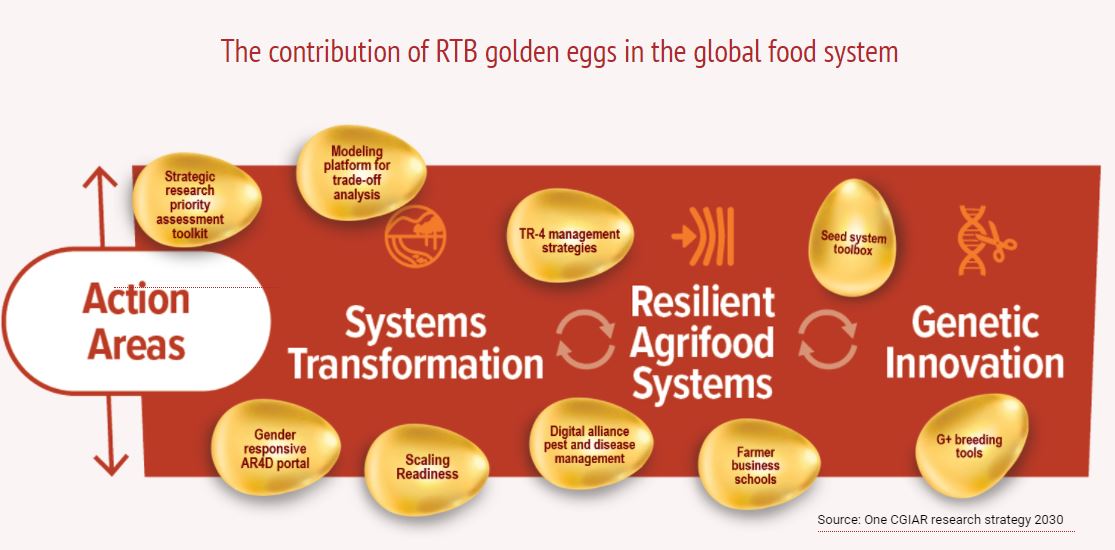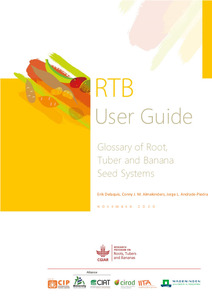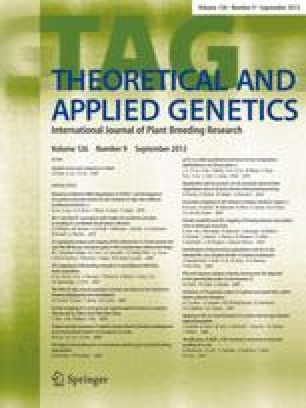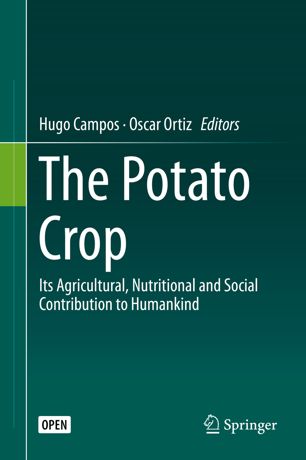Ask any child who is well versed in Aesop’s fables and you will learn that golden eggs can be a source of continual or guaranteed success or wealth. And in that vein, successful agricultural research and development innovations that sustainably contribute to food and nutrition security and better livelihoods for all can be like golden eggs.
The CGIAR Research Program on Roots, Tubers and Bananas (RTB) brings together four CGIAR centers and the French Agricultural Research Centre for International Development (CIRAD). The wide range of disciplinary skills that each brings to RTB has created opportunities for cross-fertilization of ideas and has enabled researchers to take full advantage of these synergies and complementarities. This is reflected in high-quality science with some outstanding outputs.
RTB and its partners pooled the collective knowledge they’ve gathered over the years to develop a set of shareable and useable assets for use in the One CGIAR given that the RTB program will be formally ending this year.
“We coined the term ‘golden eggs’ to describe these assets as it captures both their fragility in a change process and the notion of continued life with appropriate nurturing,” says Graham Thiele, RTB Director. “These golden eggs are those key innovations which grew out of collective action amongst several centers working together in RTB. The collective action dimension was crucial in their selection as this shows the added value of our program, but these assets like fragile eggs could get broken during a change process unless they are nurtured. Some are especially relevant to RTB crops others have demonstrated broad applicability. They can help contribute to an array of research for development activities with wide applicability for roots, tubers and bananas as well as other crops”.
Golden eggs are the frameworks, approaches, tools together with their community of developers and users that show the value-added of the RTB partnership collaboration. When used in conjunction with other technologies these golden eggs can play an important role in contributing to the UN’s Sustainable Development Goals for 2030.
Golden eggs as online resources
“We are now making this set of golden eggs available as an online resource for wider use,” says Michael Friedmann, RTB’s Science Officer. “Each of the online entries for the golden eggs explains its purpose, provides a short description, gives links to find information, and includes a contact person(s) if you’d like to follow up for more information.”
The action areas of the golden eggs revolve around the interrelated themes of systems transformations, resilient agri-food systems and genetic innovation.
As an example, let’s look at one of the golden eggs: the Toolbox for Seed Systems of Roots, Tubers and Bananas. This golden egg was designed to help understand existing seed systems of RTB crops and assess and support the design of seed system interventions and improve their effectiveness. The toolbox brings together 11 tools that work to successfully diagnose, plan and develop new vegetative seed systems.
The toolbox has been validated in East and West Africa, Asia, and South America and has helped, among other things, to design a national plan for improving seed potato systems in Georgia, to understand the networks of cassava seed exchange and how to use these insights to prevent the spread of viruses in Asia, to explore farmer preferences and demand for banana planting materials, and to modernize seed quality assurance and certification schemes for cassava and yam in Nigeria and Tanzania.
Nurturing the golden eggs
“Golden eggs, like real eggs, need to be incubated before they will hatch,” says Sarah Fernandes, RTB’s Communication Manager. “RTB will foster that incubation period by soliciting and incorporating feedback from all partners. We’ll continuously refine the golden eggs to make them more valuable going forward, and by showcasing their progress made we hope to enrich the basket with new eggs.”
The recent review of Phase 2 (2017–2019) RTB says it is “critical” that these packages be developed and expanded to cover all of RTB’s many achievements. It recommends that CGIAR in general consider the broader use of the concept of golden eggs.
“We feel that these golden eggs will be like the goose which keeps giving as they are a positive contribution from RTB to ensure that all of our work in agricultural research in development is widely available,” says Sarah. “We look forward to nurturing these eggs, watching them hatch and grow, and adding new eggs as the RTB transitions to the One CGIAR framework beginning in 2022.”
The nine golden eggs
Modeling platform for trade-off analysis in complex socioecological and livelihood systems
Provide a flexible set of calculation tools and data to quantify the performance of agroecosystems. This allows for the design of sustainable socio-ecological systems that serve food security, equitable livelihoods and a healthy environment and are resilient to emerging challenges including climate change and shifts in food demand.
Integrated strategies for managing Fusarium wilt of banana, tropical race 4 (TR4)
Enhance collaboration among global, regional, national and local agencies to develop strategies for managing Fusarium wilt of banana, tropical race 4 (TR4), integrating plant quarantine, containment and mitigation.
Toolbox for Seed Systems of Roots, Tubers and Bananas
Understand existing seed systems of vegetatively propagated crops, mainly potatoes, sweetpotatoes, cassava, yams, bananas, and assess and support the design of seed system interventions and improve their effectiveness.
Removing gender bias in AR4D: A portal for gender-responsive agricultural research for development
Provide guidance on how to develop and use innovative ideas, critical questions and methods for gender-responsive agricultural research for development (AR4D).
Scaling Readiness: An approach to enhance scaling of innovation
Improve the efficiency and impact of research for development programs through critical reflection on how ready innovations are for scaling and what appropriate actions could accelerate or enhance scaling.
Alliance to foster use and interoperability of digital tools for effective pest and disease management
Enable users to interact and share data across multiple applications for the diagnosis and management of known and emerging pests and diseases.
Farmer business schools
Enable a systematic approach to pro-poor agri-enterprise development for inclusive value chains.
A systematic gender-responsive and evidence-based customer and product profiling approach for breeding
Provide an evidence-based protocol that is socially inclusive for customer and product profile development including trait prioritization.
Strategic research priority assessment toolkit
Support investment and research portfolio decisions by determining the expected impact adoption of agricultural technologies generate in terms of economic benefits, poverty reduction, food security, and nutrition and health.
Blog will also be published on Agrilinks during roots, tubers and banana month (May 2021).




